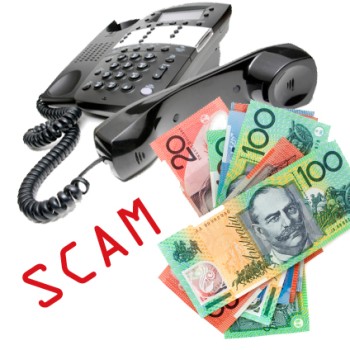 Microsoft scam – take two
Microsoft scam – take two
The phone rings and at the other end of the line is a caller claiming to be from Microsoft and enquiring whether your computer has been running slow.
This is an all too familiar story for a huge number of Australians who are frequently being targeted by overseas based scammers who want to gain access to your computer and personal details and worse still charge your credit card for the privilege.
Even though the Microsoft scam has been around for more than two years and there has been considerable awareness-raising, including numerous warnings through the media, Consumer Protection still receives calls every week from people in WA who are falling for it.
Now to add insult to injury, victims are being targeted a second time around with a bogus compensation offer from the scammers who conned them the first time.
During the follow-up calls the scammers falsely claim they’re from a government or law enforcement agency (either foreign or Australian) or sometimes they pretend to be from a bank.
Be aware that there is no official compensation scheme for people duped in the Microsoft scam.
In fact WA ScamNet is now hearing from affected consumers who say their credit card providers are not even providing a charge back option due to the prolific nature of the scam and the fact that the consumer knowingly handed over their credit card details rather than them being obtained fraudulently.
There is also a warning on the ACCC’s SCAMwatch site about this latest twist whereby compensation if offered to those who originally fell for the Microsoft scam.
Another new tactic the Microsoft scammers are using is to re-target people who expressed during the original call that they had a Mac rather than a PC.
The scammers are calling again and pretending to be from Apple instead of Microsoft.
Consumer Protection has been hearing a lot of anecdotal evidence regarding consumers stringing Microsoft scammers along out of frustration at the number of calls being received.
It’s really important not to do this and instead just hang up. You may not realise but you could be giving them ammunition for another scam attempt.
As usual, spread the word among friends and family about the new aspects of the Microsoft scam. Don’t forget you can also share this warning with your social networks via the file sharing facility below.
Update 4th October 2012 : Pulling the plug on Microsoft scammers
Joint action between three international regulators has thwarted a massive global phone scam, with US authorities winning court orders to close down and freeze funds of imposters posing as Microsoft employees offering to fix PC viruses.
The Australian Communications and Media Authority (the ACMA), the US Federal Trade Commission and the Canadian Radio-television and Telecommunications Commission collaborated to share key intelligence about the operations of the Microsoft imposters.
Read the full media statement.
In the last two years, the scam has become the most commonly reported to Consumer Protection in Western Australia, with more than 2000 enquiries lodged over 2011 and 2012 and reported financial loss of more than $38,600 since 2010.



